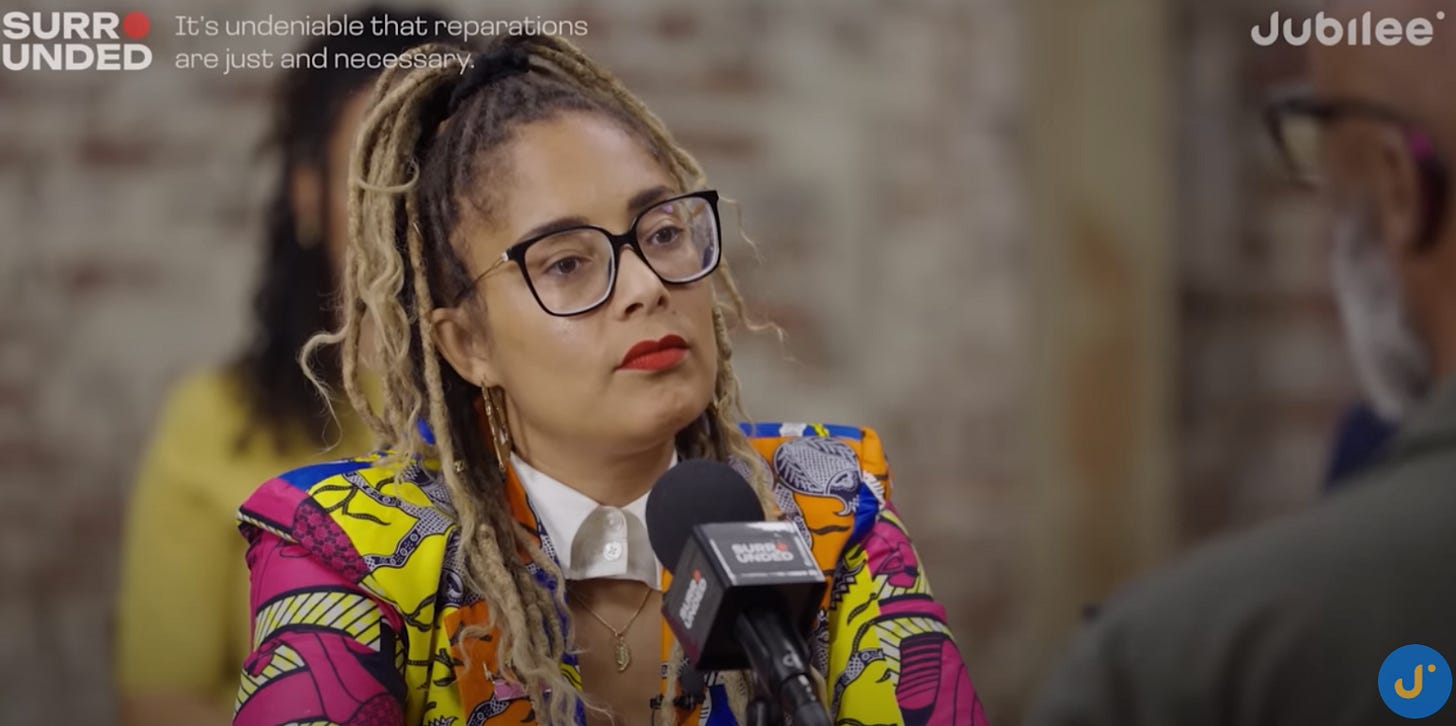A month ago, I wrote about Amanda Seales’ Jubilee debate against Black “conservatives”. My primary issue is that she seemed to be focused on principles of fairness for injustices rather than addressing issues that many working-class Black people have. Taking a stance for fairness is a matter of ideology. And while ideology and a strong sense of justice are important for a society, they cannot be the primary means of activism. Especially if there’s no plan to make tangible changes.
I never see people on either side of the political spectrum discuss endemic trauma and its effects on the Black American community. Trauma hacks the body. It can destroy the mind and a collective culture. Why isn’t this a national conversation?
One study found that almost 40% of adolescent Black girls in Chicago Public Schools suffer from PTSD. That is double the rate of recent combat veterans. Other research from Baltimore found that out of a sample size of 37 Black men ages 18-24, all of them had witnessed an extremely violent situation. All had lost at least 1 loved one. On average, each participant experienced the homicide death of three loved ones, mostly peers, often beginning in early childhood. All participants had at least one symptom of PTSD. 73% of them qualified for the minimum viable diagnostic qualification for PTSD. To be clear, both of these studies were conducted in densely urban communities with high crime and violence rates. On average, the Black American PTSD rate is around 9%, with Black Women hovering around 14% which is double the total amount for White Americans at 7%. This number is still pretty high!
Seales’ stance is to recognize this trauma but to almost look past it to discover its root causes, which she would identify as enslavement or intertwined issues that came after it. Sure, she’s not entirely wrong. But I believe much of American society has accepted the detrimental impact that chattel slavery and a de facto caste system have had on Black American culture.
And, to that I say, now what?
It is imperative to reduce and treat trauma.
Other proposed solutions, such as reparations, mutual aid, funding schools, and funding police departments, will have little to no impact unless this compounding trauma is addressed directly.
Trauma doesn’t just make you sad or angry. It fundamentally alters how your brain processes information, how your body responds to stress, and how you relate to others. Complex trauma, which is the kind that comes from sustained exposure to violence, neglect, or systemic oppression, rewires your entire system for threat detection.
So, when you’re operating from trauma, everything becomes about immediate survival rather than long-term planning. You make decisions based on avoiding pain rather than creating joy. You relate to others through patterns learned in crisis rather than connection. You organize your life around what might go wrong rather than what might go right.
We live in a time of immense abundance. Resources need to go to diminishing violence and the trauma it causes. Trauma impacts brain development, community resources, and progress.
What would it look like to actually address trauma at scale in Black communities?
Community-based healing programs that don’t require people to pathologize themselves to access support. Trauma-informed schools that understand why some kids can’t sit still or focus without first feeling safe. Economic development that prioritizes community ownership and decision-making rather than outside investment that extracts wealth.
These aren’t pie-in-the-sky fantasies. These are evidence-based interventions that work when implemented with adequate resources and community buy-in.
Amanda Seales is correct that historical injustice has contributed significantly to this trauma. Her conservative opponents are right that communities need agency and self-determination. They’re both wrong to act like these realities are contradictory rather than complementary.
We have the knowledge, resources, and examples to address trauma at scale. What we lack is the political will to prioritize healing over debate, solutions over grievance, and community care over ideological purity.
The choice isn’t between acknowledging systemic oppression and promoting individual healing; it is between acknowledging systemic oppression and promoting individual healing. The choice is between continuing to argue about causes while people suffer, or actually addressing the consequences while we work on systemic change.
Trauma is the missing piece that makes both sides’ arguments incomplete. Until we name it, fund it, and heal it, we’ll continue to have the same debates while communities remain stuck in cycles they have the power to break.



